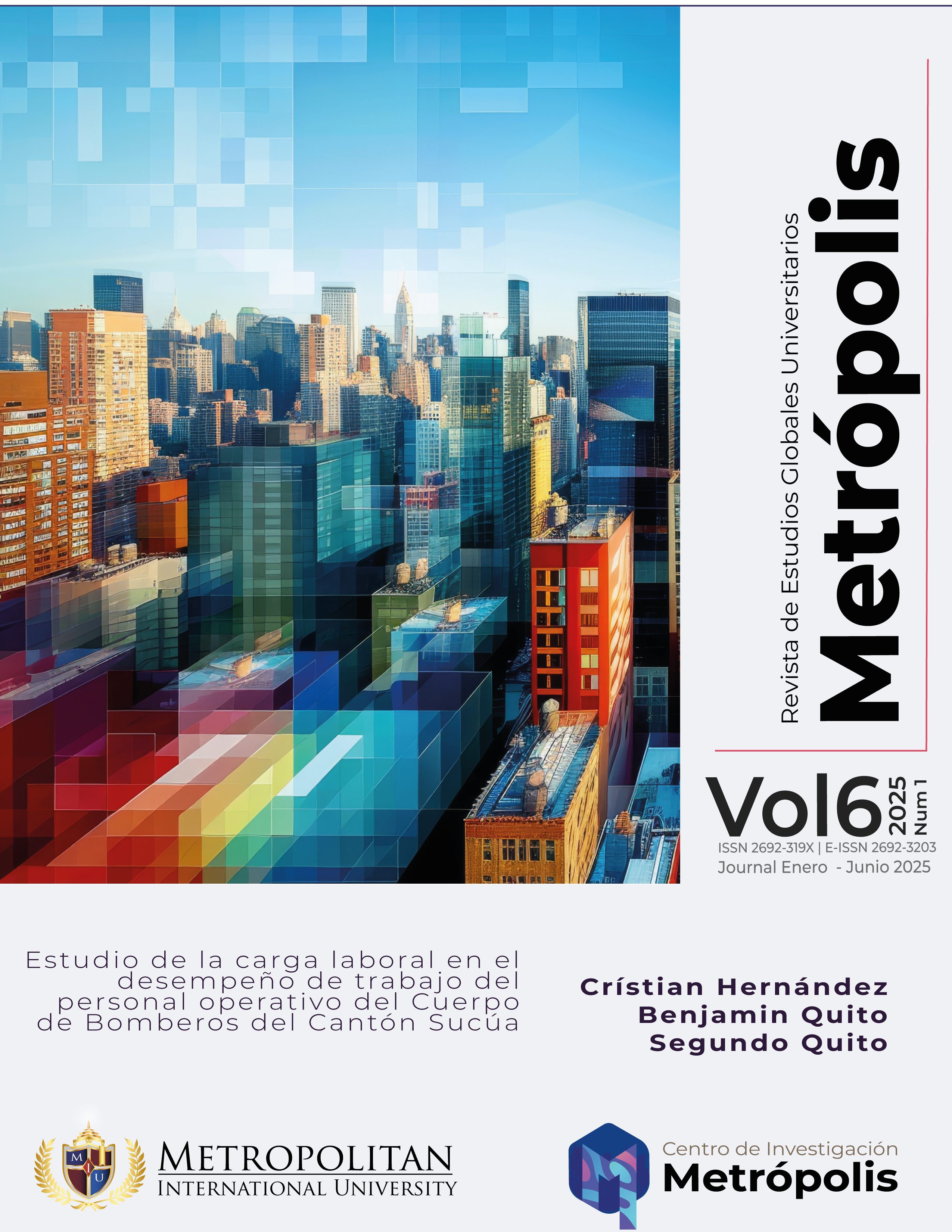The study of workload and its impact on the job performance of the operational staff of the Sucúa Fire Department.
Keywords:
Worload, Firefighters, Stress, Perfomance, HealthAbstract
This study examines the impact of workload on the performance of operational staff in the Sucúa Fire Department. Excessive physical demands, psychological stress, and personnel shortages contribute to severe fatigue, reducing emergency response efficiency. Additionally, prolonged exposure to traumatic events increases the risk of post-traumatic stress disorder, anxiety, and emotional exhaustion, negatively affecting firefighters' mental health and well-being, which can also impact their job satisfaction. The research employs a mixed-methods approach, integrating quantitative and qualitative analyses. Surveys assess workload perception, stress levels, and job satisfaction, while semi-structured interviews provide deeper insights into firefighters' experiences. Statistical techniques identify patterns and correlations, offering a comprehensive understanding of workload dynamics and their long-term effects. Findings indicate that extended shifts and insufficient rest impair decision-making and heighten the risk of operational errors. To mitigate these challenges, recommended strategies include recruiting additional firefighters, implementing balanced shift schedules, and improving access to psychological support programs. Additionally, ongoing training and the integration of advanced technologies are emphasized to enhance operational efficiency and resilience. Strengthening organizational support through periodic evaluations and optimized task distribution is essential. Ensuring adequate staffing and fostering workplace well-being can significantly improve firefighters’ performance, safety, and stress management. Implementing wellness programs and mental health resources may further reduce burnout and enhance job satisfaction. Further research is needed to assess the long-term impact of these interventions on firefighter health and operational effectiveness. A deeper understanding of workload management will support the development of policies that enhance working conditions while maintaining high standards of emergency response.

Downloads
Published
How to Cite
Issue
Section
License

This work is licensed under a Creative Commons Attribution-NonCommercial-ShareAlike 4.0 International License.



